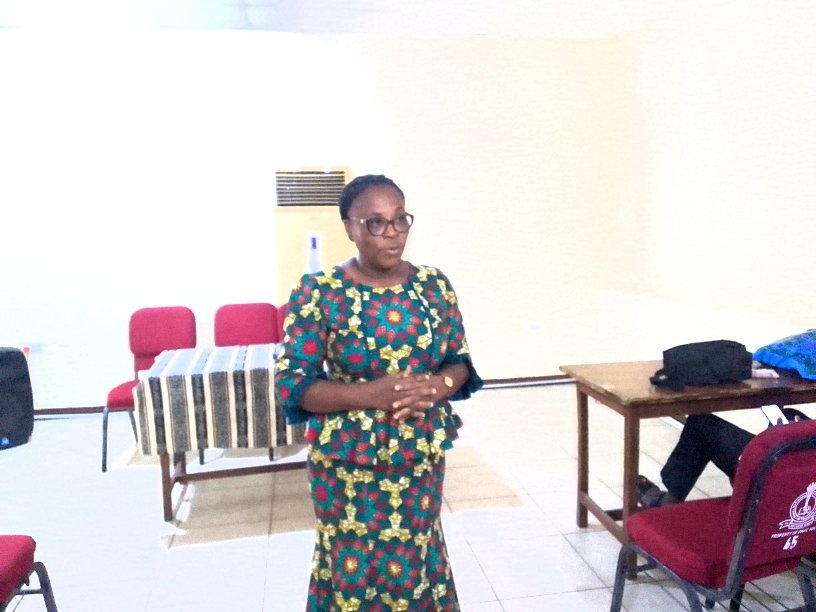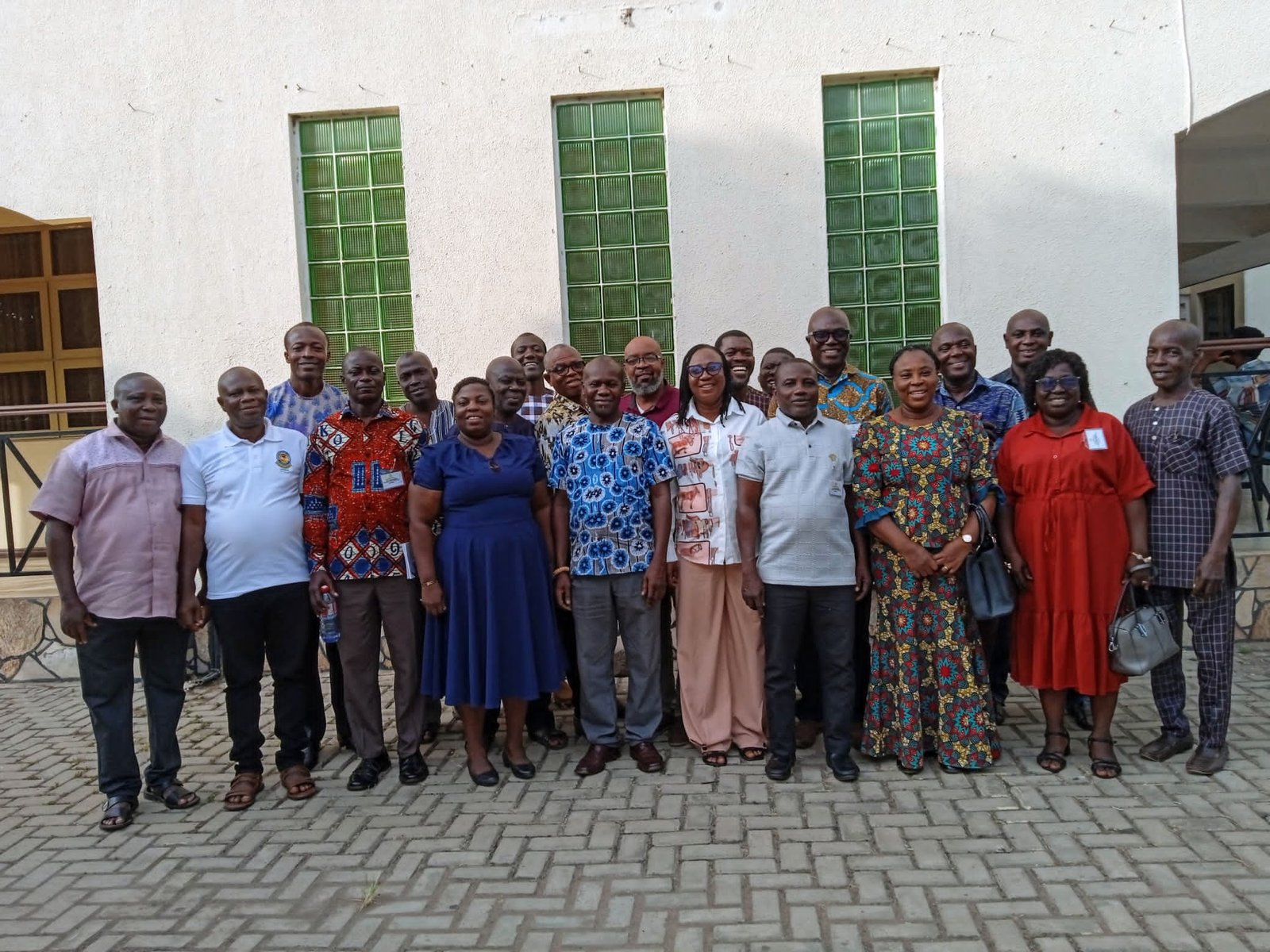By Desmond Tinana
The Volta Regional Ghana Education Service Directorate has held a two-day capacity-building workshop for District Human Resource Managers and development officers for all districts and municipalities under the Ghana Education Service (GES) in the Volta region.
According to the Volta Regional Human Resource Manager Madam Rebecca Fenuku, the two-day capacity improvement training program was mainly to update the skills knowledge, and competencies of the human resource officers from the district offices to enable them to improve upon their performance, address challenges faced by the professionals in their work and also to help them give the necessary support to staff mainly teachers and education officers to and to enhance learning outcomes in schools.

The workshop also aimed to enhance the skills of the professionals in payroll management, promote efficiency, and address evolving HR practices in the education sector. During the workshop, HR officers were trained on a variety of topics, including updated human resource management practices and conflict resolution. They were introduced to the latest Human Resource Management Information System, which helps in handling staff payroll, personnel data processing, and salary reactivation for newly recruited staff. Additionally, participants were educated on effective ways to prevent and manage workplace conflicts.
The Volta Regional Director of Education, Mr. Francis Yao Agbemadi, in his address, stressed the critical role of HR professionals in ensuring staff welfare and performance, acknowledging their recent efforts in managing inter-regional postings and documentation for newly recruited teachers.
The Director recognized the many challenges HR officers face, including resource constraints and the demands of modern workplaces. He underscored the importance of professional development to overcome these challenges and emphasized the need for ethical HR practices. He pointed out several critical issues affecting the Ghana Education Service (GES), such as delays in staff validation submissions, negligent validations causing salary interruptions, and the abuse of validation processes. He also addressed serious concerns like falsified ranks, salary fraud, and unethical repostings motivated by personal gain and, therefore, called for accountability, stressing that those implicated in such acts would be held responsible.
The Director urged HR officers to commit to professionalism, transparency, and accountability, aligning their actions with the GES Code of Conduct and labour laws. He encouraged them to develop effective payroll management strategies and best practices to uphold ethical standards. With digital transformation advancing, he emphasized the need for HR officers to be equipped to oversee IT staff and validate their work. Concluding with a call for lifelong learning, he quoted Alvin Toffler, urging HR professionals to adapt and remain relevant in their roles. The Director’s speech concluded by reinforcing the collective responsibility to build a culture of integrity and excellence in the education sector.
Francis Mensah Vidzro, the Volta Regional Training Officer at the Ghana Education Service (GES), highlighted the heavy responsibilities placed on Human Resources (HR) officers within the organization like recruitment, staff transfers, promotions, welfare, and managing various types of leave, such as maternity and paternity leave. He added that they are also responsible for developing the capacity of teachers and addressing union issues. Due to frequent changes in HR policies, there are continuous updates to better serve GES employees and the broader education system in Ghana. The professionals were updated at the workshop on practices, including human resource management, performance management, conflict resolution, and data processing systems.
He underscored the importance of improving relationships within the workplace and enhancing the support provided to teachers, particularly in the areas of performance management and teacher rationalization.
Mr Vidzro also addressed the critical issue of teacher distribution. He explained that while HR officers are tasked with posting teachers equitably to both urban and rural schools, more teachers are often concentrated in urban areas, leaving rural schools with few teachers.
He added that logistical challenges prevent HR officers from conducting performance assessments at schools to ensure teachers are fulfilling their duties. This lack of oversight has led to difficulties in ensuring that all schools receive adequate teaching staff.
Emmanuel Makafui Patu, the HR for Akatsi South Municipal Directorate of the Ghana Education Service, expressed that the workshop was timely and valuable. According to him, newly appointed staff often do not have opportunities for refresher training, which the workshop addressed, including other numerous challenges in the system, particularly related to content delivery. Mr. Patu highlighted that the training changed the perceptions of participants empowering them to handle issues effectively by distinguishing between what should be addressed with policy and what can be dealt with through alternative methods.
He also discussed other challenges in the field, such as lack of cooperation and interference from colleagues. Mr Patu mentioned that when insisting on adhering to policies, individuals are sometimes seen as difficult or biased. However, he felt that the workshop provided clarity on handling these situations, noting the importance of dealing with policy matters strictly while addressing others with flexibility to promote cooperation and effectiveness.








